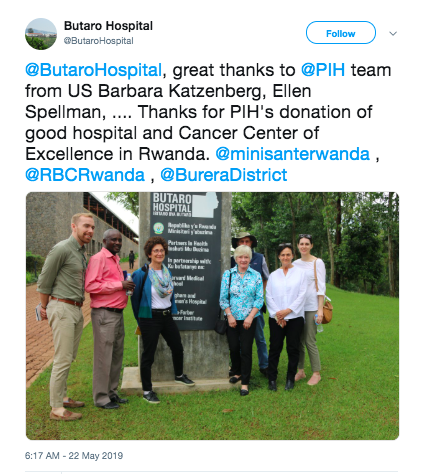Rwanda partners with US non-profit to open medical school
By Wallis Wang and Angie Chan
Ten years ago, Ellen Spellman was looking for an organisation to donate to. From a family of doctors in the United States, she wanted her money to work towards better healthcare in a part of the world that needed it most. She finally chose Partners in Health, a non-profit that works to improve healthcare systems in Africa, South America, Mexico and the United States
Now, a decade later, Ms. Spellman has come to Rwanda to see what her contributions have accomplished.
Since 2005 in Rwanda, PIH has helped support three district hospital and 40 health centres and created a network of more than 5,000 community health workers in three rural districts.
“Although the need for international support is evident and substantial, we were impressed by the advances the country has made in recovering from the genocide and meeting its challenges head-on,” Ms. Spellman said.
Rwanda has made great strides in healthcare since the genocide, which destroyed health facilities and dropped the country’s life expectancy to 27, the lowest in the world. Many health workers were also killed.
Now, life expectancy has increased to 67 and HIV infections, AIDS-related deaths, tuberculosis and maternal and child deaths have dropped significantly. Health insurance is compulsory, covering nearly everyone, and every village has a community based health system.
But the country still falls below the global life expectancy average of 72 and even though it has one of the most coveted healthcare systems in Africa, it still struggles with poverty and access to training and resources.
This summer, the University of Global Health Equity is opening a medical school in rural Butaro, one of the poorest areas of the country. The school was set up by PIH and the Rwanda government with funding from the Cummings Foundation and the Bill & Melinda Gates Foundation. The hope is to train a generation of young global health leaders that can build and sustain health systems in the country.
“Instead of working in the city where there still is a lot of need, our thought is that if we build better health systems in the most remote sections, and partner closely with the government, that they see the successes, and they sort of apply that to other places that’d work,” said Sarah Belschner, Director of Development at PIH.
PIH opened the Butaro District Hospital in the region in 2011 and added a cancer care centre the following year, another reason for school’s location.
The school is partnering with faculty from organisations such as Harvard Medical School, Johns Hopkins and Yale University and will train doctors, nurses, researchers, veterinarians, and public health and policy experts.
“We are realising that yes, she may be sick with STD, maybe with HPV, but if you don’t have food, if you may have some mental issues that are happening, if you can’t send your kids to school for something more, if you don’t have a roof over your head, none of our medicines are going to fix you, so you have to sort of have the full picture,” Ms. Belschner said.
